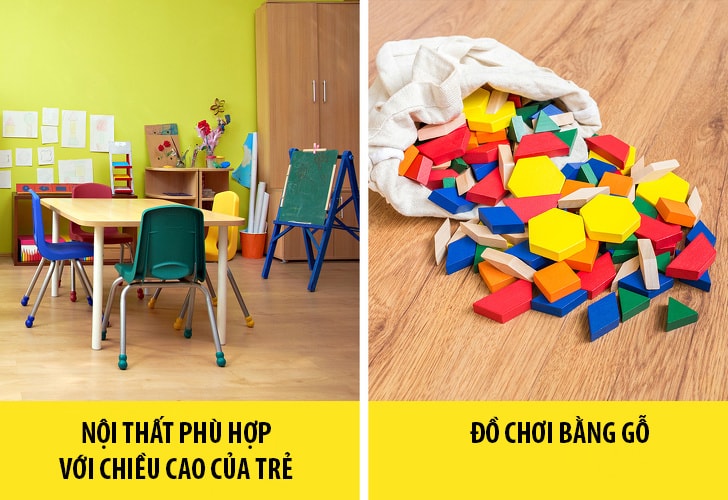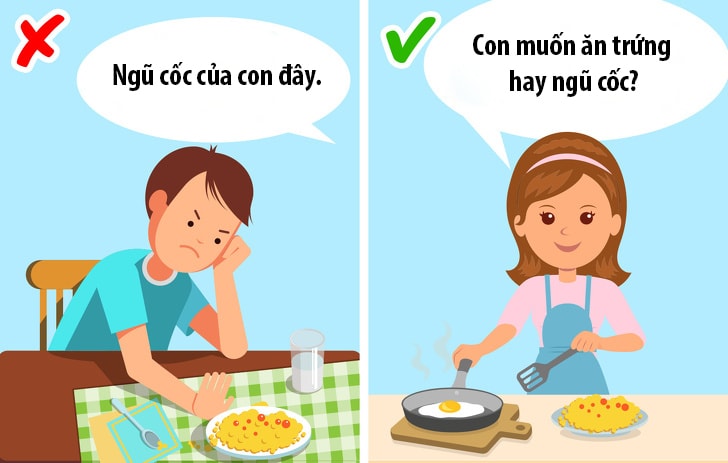Advice from 6 great educators to help children be confident and happy
6 educators with different philosophies and perspectives, but all believe that if parents give children freedom and respect their wishes, those children will grow up to be confident and happy.
Maria Montessori - Founder of the Montessori education system
Mariana Montessori was the first woman in Italy to graduate from medical school. She was nominated for the Nobel Prize several times and her approach to education is still very famous in many countries around the world.

Maria Montessori's view:
- A child deserves respect. So gentle requests are better than commands.
- Don't judge children from your own perspective. Try to put yourself on their level.
- Tables, chairs and clothes hangers should be designed to suit children's height so that they can do things by themselves. Doing so will make children feel happy.
- Don't do for children what they can do for themselves.
- Create many opportunities for children to express their abilities and emotions.
- Let your child help you with the housework.
Loris Malaguzzi - The Creator of the Reggio Approach
Italian psychologist Loris Malaguzzi believes that a child can speak 100 languages, meaning that children can speak and express their thoughts in many different ways through drawing, singing, and playing. But adults often suppress the other 99 languages. Parents should listen to their children and teach them how to use the remaining languages in their daily lives.

Malaguzzi's view:
- There are no wrong answers, just different perspectives. Don't tell children they are wrong about something. Ask them why they think that way and show them another way of thinking.
- Before explaining something, ask your child if they already know about it. If you tell them something they already know, they will lose interest and not listen.
- Ask more questions that require detailed answers. This way, children will learn to think and express their thoughts.
- Let the child make their own choices. For example, what color clothes they want to wear.
Rudolf Steiner - The creator of the Waldorf education method
Waldorf is a method proposed by Austrian educator Rudolf Steiner. Waldorf schools always emphasize self-confidence, freedom to explore and express creativity. There are no tests and grades. However, children still pass exams like students in other schools.

Rudolf Steiner's view:
- No book can teach parents how to communicate with their children. Each child is unique. Therefore, parents must have teaching methods that are appropriate to each child's ability.
- Interesting stories can teach children better than boring lessons in books.
- Children should spend a lot of time participating in outdoor activities, learning to observe, admire beauty and live in harmony with everyone.
- Simple toys like wooden blocks can enhance a child's imagination.
- Teach children simple daily rules such as greetings, eating habits...
Alexander Neill - Founder of Summerhill School
Summerhill School, founded in 1921 by Alexander Neill, is based on a philosophy of freedom that has been controversial in the UK for some time. Students can choose not to attend school and are not even required to attend classes. On average, children at Summerhill spend three months doing nothing, then start attending classes. In addition to the usual subjects, this unusual school also teaches children how to Photoshop, grow plants, and other skills.

Alexander Neill's view:
- When we say no to a child, the child begins to say no to life.
- A stubborn child is often one who cannot get along with himself or the outside world.
- Parents of “stubborn children” should sit down for a few minutes and honestly answer the questions: “Have I supported my child?”, “Do I trust my child?”.
- Children must be allowed to have their own lives, not the lives programmed by their parents or teachers.
- Children do not need to adapt to school, but schools should adapt to children.
- Parents often try to scare children with scary consequences if they make mistakes. But it's better to teach children not to be afraid of anything.
John Dewey - Founder of Instrumentalism
In America, Dewey is considered the father of progressive education. Dewey believed that the purpose of school was to educate children to find a way out of any situation by learning to adapt to the environment. That is how children are taught useful things instead of providing abstract knowledge from books.

Dewey's view:
- Children should take the initiative to do something instead of being taught something. Action will lead to results.
- Don't shame your child for their failures. Failure helps us become better.
- All great scientific discoveries were made by people who were not afraid to use their imagination.
Célestin Freinet - Owner of the Freinet educational method
Freinet opened his own school at the age of 24 to help children with developmental disabilities. His school had no textbooks or homework, but still produced students with great success.

Freinet's view:
- Even the most enjoyable activities can become torture if children are forced to do them.
- The earlier children do chores, the more confident they will become in the future.
- Instead of prohibiting and giving unreasonable punishments, parents should negotiate with their children.
